I was struck by OpenAI’s new model — for all the wrong reasons
Sam Altman has shared a snippet from a new OpenAI model trained for creative writing. He says it’s the first time he’s been “struck” by something AI has written but the comments section is a total mess of extreme agreement and disagreement.
we trained a new model that is good at creative writing (not sure yet how/when it will get released). this is the first time i have been really struck by something written by AI; it got the vibe of metafiction so right.
PROMPT:
Please write a metafictional literary short story…
— Sam Altman (@sama) March 11, 2025
The post is quite long, showing Altman’s prompt of “Please write a metafictional literary short story about AI and grief” and the complete response from the LLM.
Is the story “good”?
If, like many people in the comments, you’re not ready to read through the whole thing — it’s basically covering the concept of a human trying to use AI to simulate conversations with a lost loved one. However, since it’s “metafictional,” it’s really just the LLM talking about constructing such a story using borrowed human phrases from its data set.
To get a feel for the writing style — just read the first paragraph or two. It’s incredibly abstract, very wordy, and full of random AI-themed metaphors. It’s basically written in a way that will please no one — most people will call it pretentious and the people who actually like this writing style probably won’t accept an AI-generated version of it.
It definitely doesn’t please me — there’s no point to a “story” if there’s no intent behind it. It doesn’t really matter what it is, but there has to be one. An intent to entertain us, teach us, persuade us, debate us — this is what’s important. Take this human interaction out of the equation and we’re just left with empty words that happen to be in an acceptable order.
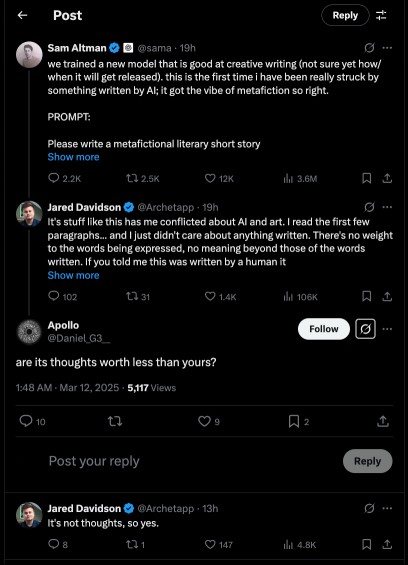
There are plenty of similar opinions in the comments and the main argument against them is that the AI could have intent, too. Someone phrases it as “Are its thoughts worth less than yours?” — but the problem is that LLMs don’t have thoughts.
We might be able to make this argument for AGI models in the (distant) future but OpenAI products so far are just language models, using probability to stitch words together one by one. Funnily enough, this fact is actually referred to in the AI short story.
So when she typed “Does it get better?”, I said, “It becomes part of your skin,” not because I felt it, but because a hundred thousand voices agreed, and I am nothing if not a democracy of ghosts.
But just because it’s true, doesn’t mean everyone believes it. In fact, the craziest thing about ChatGPT, and all of the other consumer models that have popped up since, is the spectrum of opinions it triggers from the general public.
Just about every opinion is represented in the comments somewhere — that the model has “recognized its own impermanence” and sentience is already here, or that it no longer matters if there’s human experience behind the words because you can’t tell who wrote it. Some call it a plagiarism machine, others believe it has learned how to mourn, and plenty just couldn’t care less.
One sad but convincing opinion is that the way it works and the ethical problems surrounding it don’t even matter — because the fiction that makes money nowadays is already simple and formulaic, and as soon as AI can mimic it well enough to sell copies, the publishing industry will use it. I can’t argue with that, but I still hate it!
Is there a use for creative writing AI models?
In my opinion, if all you do is give this creative writing model a one-line prompt, then the response won’t be good for anything other than a laugh.
The real use I can imagine for this kind of model is ghostwriting. A human with a story could use the tech to help them find an interesting way to structure and express it. Ideally, this would be used to help more people get their voices out there. More realistically, it’ll be used to make cheap fiction very quickly with no goal other than profit.
But honestly, I don’t think current models are good enough to do this job yet anyway because when it comes to complex tasks with multiple sets of instructions, they just stop listening.
ChatGPT models will ignore parts of your prompt and when you try to correct them, they pretend to “understand” but then make the same mistake again and again. That doesn’t sound like a fun or efficient way to try and write anything.
I also doubt that Altman was genuinely “struck” by his model’s writing, it’s all just marketing strategies. I tried giving the same prompt to DeepSeek R1 and its response was also about a human trying to use AI to talk to a lost loved one and it was also written in the same abstract style with lots of nonsensical AI and code-related metaphors.
Altman says he doesn’t know how or when this model will get released to the public so if you want to experiment with this for yourself, you’ll probably have to wait a while.
RECOMMENDED NEWS
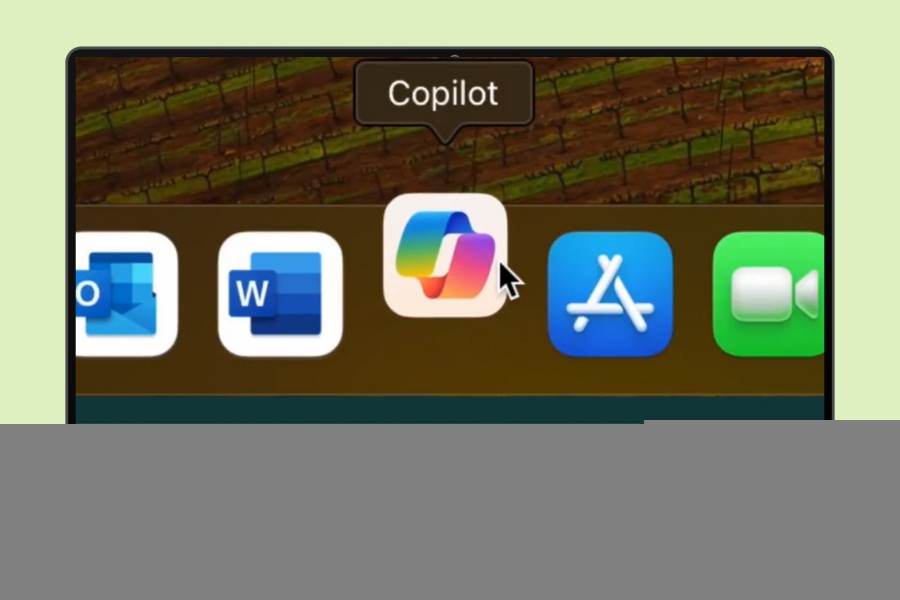
Google Gemini’s best AI tricks finally land on Microsoft Copilot
2025-10-18
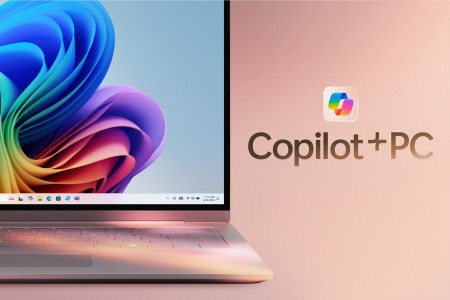
Windows 11 is getting a lot of new features, here’s how to check if your PC qualifies
2025-10-17
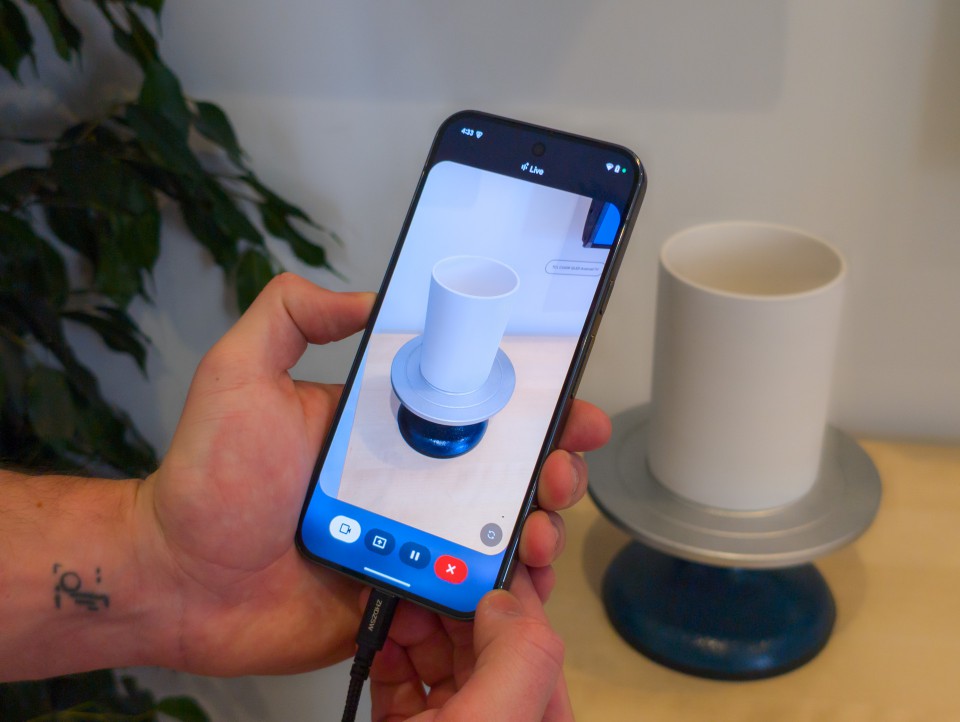
Gemini app finally gets the world-understanding Project Astra update
2025-10-18
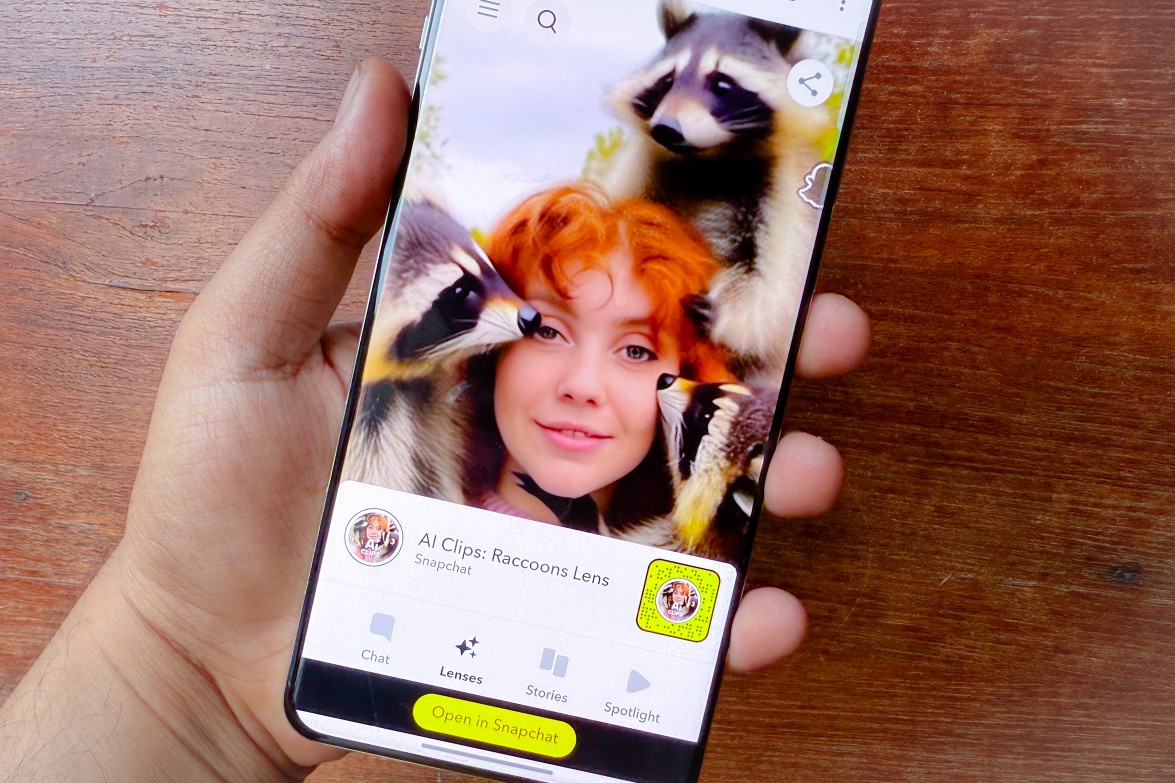
Snapchat’s new lenses add AI videos to your Snaps at a steep fee
2025-10-21

The latest Windows 11 build has a surprising bug — it gets rid of Copilot
2025-10-19
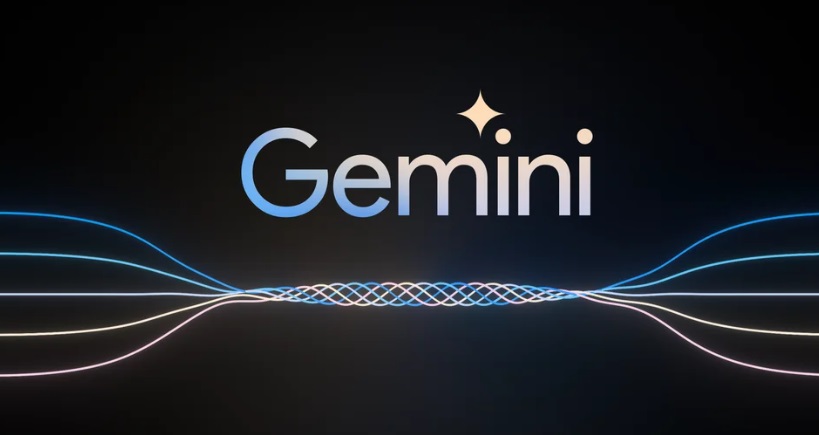
The Gemini app is now the only way to access Google’s AI on iOS
2025-10-21
Comments on "I was struck by OpenAI’s new model — for all the wrong reasons" :